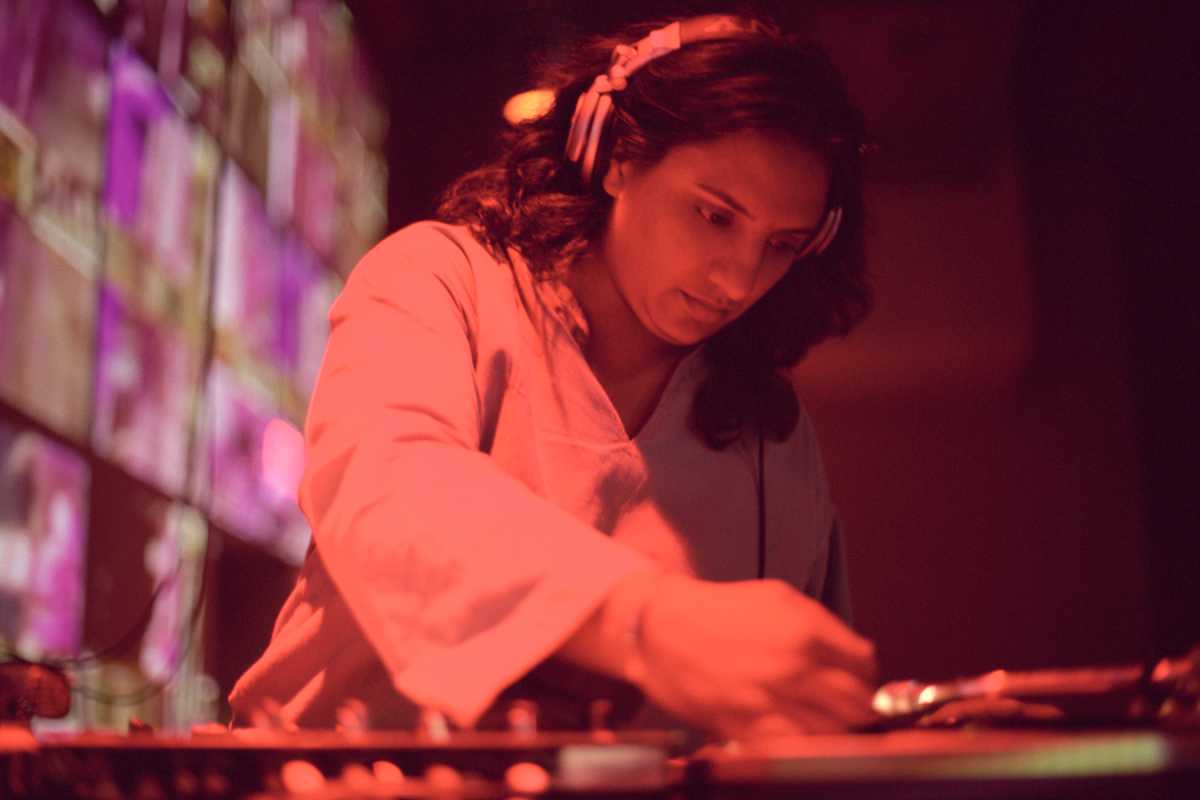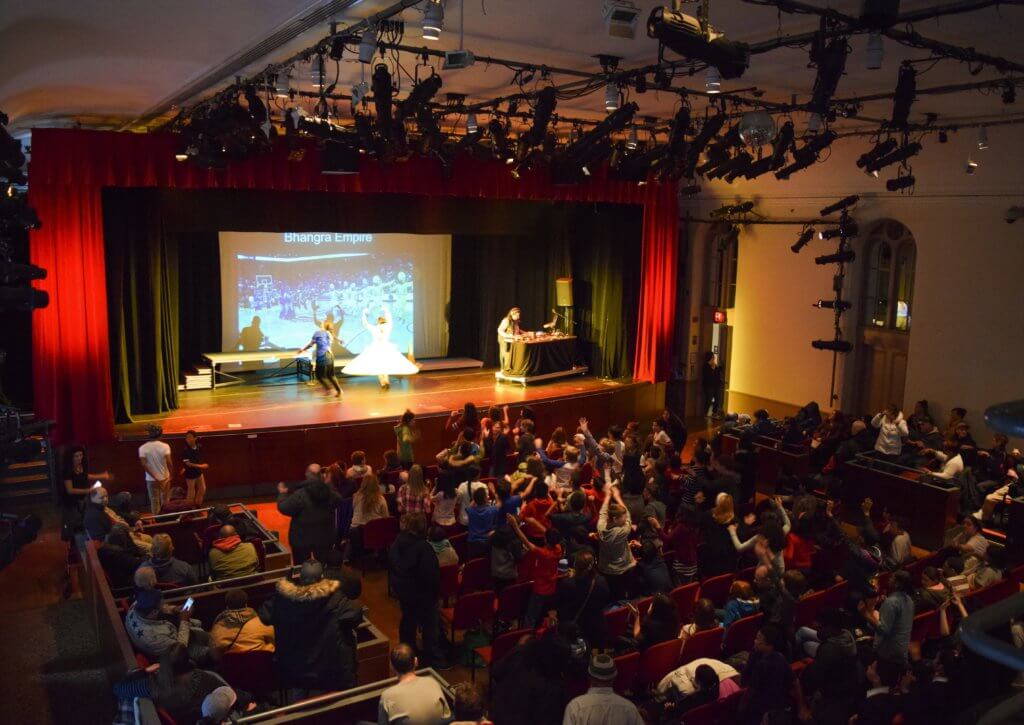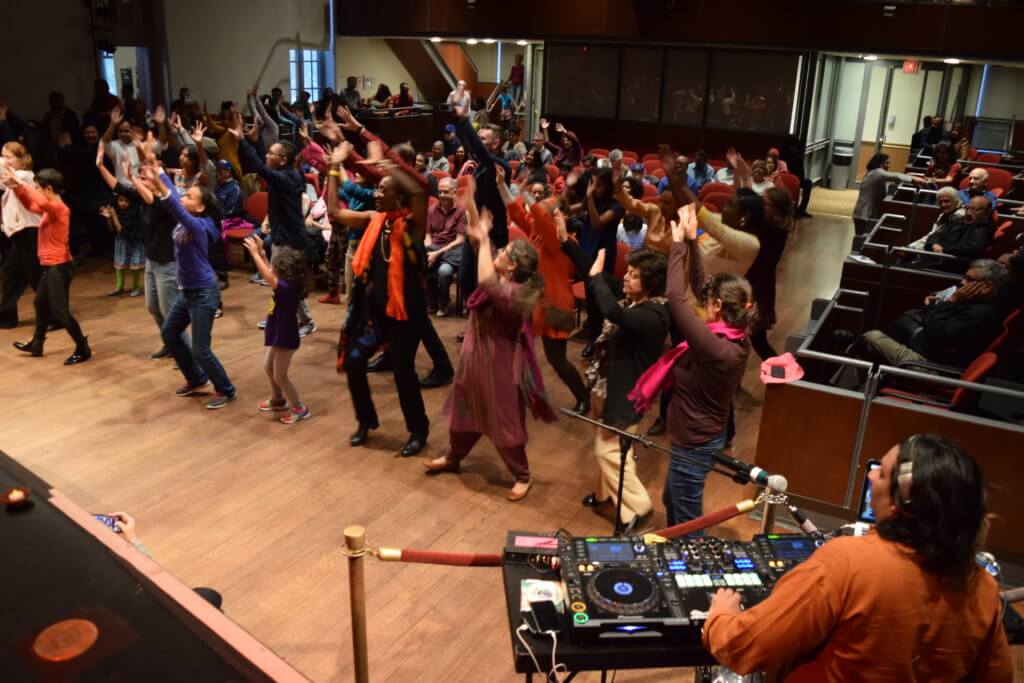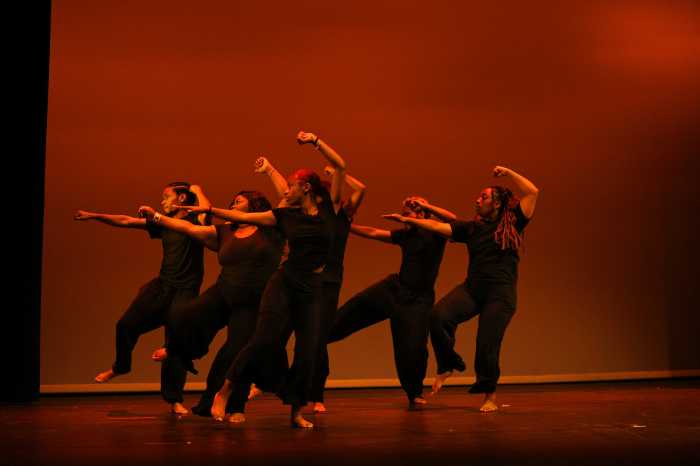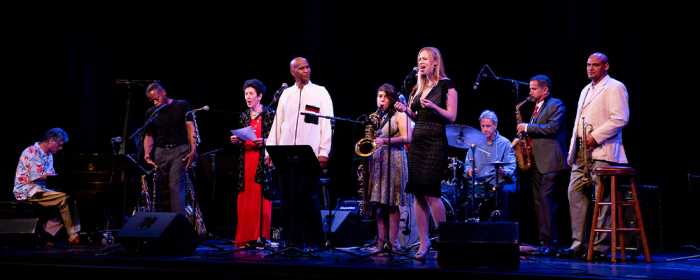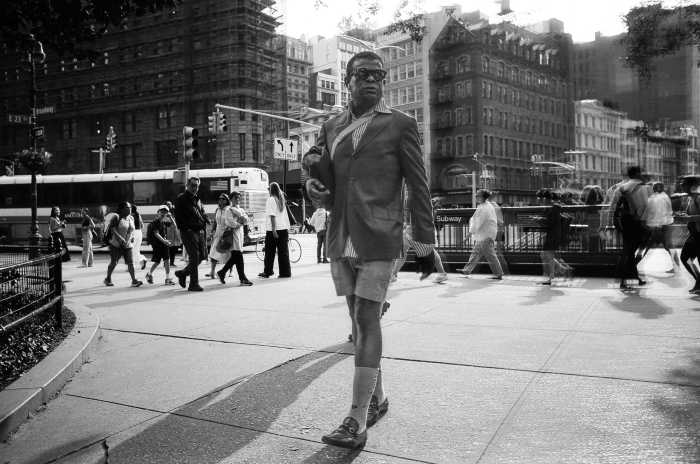DJ Rekha wants to make people dance, which she’ll get to do this weekend at a special Flushing Town Hall celebration for Diwali.
The London-born, Flushing raised DJ, producer, musician, curator and activist is performing at the fifth annual Indian Festival of Lights on Saturday, Nov. 2. The DJ’s set will include “a variety of bhangra, Bollywood and global beats”, along with a dance lesson led by instructor Abha Roy.
People of all ages are welcome to the festival and dance party, which includes music, dance, food and family-friendly activities. Tickets are $20 for general admission, $15 for members, $10 for students and children and free for teens. Visit the Flushing Town Hall website for more information.
“It’s very special to me because just from geography it attracts a whole different audience that I don’t see in my clubs, Brooklyn, Summer Stage or Manhattan. To me, it’s an all-ages crowd and I just love playing for people who are so appreciative and it’s just a lot of fun,” DJ Rekha said.
Growing up, DJ Rekha, born Rekha Malhotra, viewed Diwali as more secular than religious. During the holiday, she enjoys seeing family and friends, eating “a lot of sweets,” gambling and playing cards.
“I’m not religious and I think Hinduism is problematic as an idea. It reinforces a certain kind of caste hierarchy that I don’t endorse. For me Diwali is a secular celebration, I take from it what I think are the positive notes, which are lightness over dark, celebration [and] a new year that is not governed by our western calendar,” she said.
The early DJ days
After living in London, DJ Rekha and her family moved to India for three years before settling in Flushing. The self-proclaimed “music head” grew up during the rise of hip-hop music and recalled that she and her sister were “hooked to radio and pop culture.”
“When I was a teenager, my mom went to England and brought me back a cassette tape of the singer Malkit Singh and it was a Bhangra album. We had one Punjabi folk record but this was a more ‘developed’ sound and it really blew my mind,” DJ Rekha said. “Then a few years later, I heard that guy’s voice in this remixed, pastiche song that had hip-hop and dancehall elements and contemporary pop culture references, an MLK sample and that really sort of galvanized me.”
She and her cousins from India, who lived in New York at the time, wanted to become DJs. They noticed other kids in the neighborhood DJing and thought they could do a better job due to their vast knowledge of American and Indian music.
“So it was sort of like a family project and then it just grew from there,” DJ Rekha said.
Her cousins moved out of New York but she continued DJing at activist fundraisers, private events, club spaces and art circles.
Basement Bhangra
In 1997, she started an event at SOBs called Basement Bhangra, an all-out dance party that combined Punjabi music and hip hop. She recalled that at her other gigs, the event organizers would tell her and her DJ partner to “not play too much Bhangra music” since people viewed Punjabis as “lower on the pecking order” in South Asia. Many referred to it as “cab driver music.”
Bhangra, which the DJ explains is both a genre and a dance, is characterized by many instruments including the percussive dhol and melodic tumbi “or representations thereof.” Traditionally, Bhangra is a “male dance” but has evolved as gender lines have been “blurred and erased,” she explained.
“I think within our South Asian community, the derogatory stereotypes of Punjabis are [that] it’s a lower-class association. Uneducated or less educated. The culture is very vibrant and outgoing and I think [Punjabis are] the butt of Indian jokes all the time.”
DJ Rekha said that hip-hop music was also not a popular genre in the mainstream club scene or on the radio. Only specific radio stations played hip-hop, which many believed “attracted a ‘lower class’ of people,” according to the DJ.
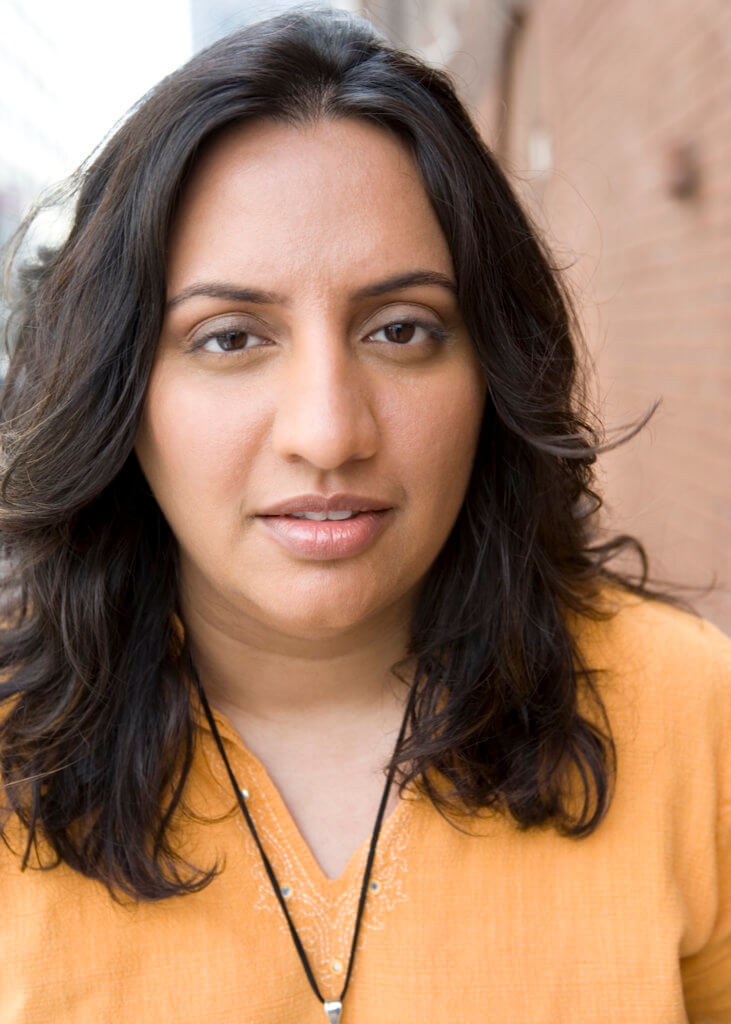
“So it was kinda like, don’t play ‘Black’ music, don’t play ‘cab driver’ music. We got an opportunity to develop a concept for a regular night at SOBs having opened for a band where they didn’t think many people would show. We brought out a huge crowd on a cold Tuesday night in winter,” she said.
The Basement Bhangra party took off after the first night. It had many iterations, fundraisers, activism and musical debuts from Bhangra and Punjabi artists, including the Punjabi MC. The last Basement Bhangra event took place in 2017 at Summer Stage following a successful 20-year run.
“Bhangra is a music and dance. It’s very demonstrative, it’s like a full-body experience. I think Basement Bhangra created a space to enjoy and revel in that music. I think Basement Bhangra created a space to enjoy and revel in that music,” DJ Rekha said.
In 2007, the New York Times named her the “Ambassador of Bhangra” and she is often credited with popularizing the genre in North America.
Present day
Since Basement Bhangra, DJ Rekha started a podcast called Bhangra and Beyond, a weekly music show during which she plays Bhangra music and does a deep dive into the analogue and creations a DJ.
She attended grad school at Massachusetts Institute of Technology (MIT) where she completed a masters in comparative studies. One of her projects was an ethnography and podcast centered on “contemporary DJ practices through the experiences of [people of color] and queer women.”
“I’m a DJ nerd. I love DJing and I really think that in my study of DJing from living it to reading everything about it, there’s so little documented about women’s experiences. It’s all through the male point of view. So, this work for me was important in just getting out, learning what DJing is today, what it feels like, but also just using women’s voices,” DJ Rekha said.
The DJ is also setting up a studio in Woodside, not far from her current home in Jackson Heights. During the two years of grad school, she traveled to Sweden, India, England, Mexico, LA and Chicago to DJ.
When she’s not DJing, she sits on the board of Chhaya CDC, an organization founded to advocate for the housing needs of South Asians in New York City.

